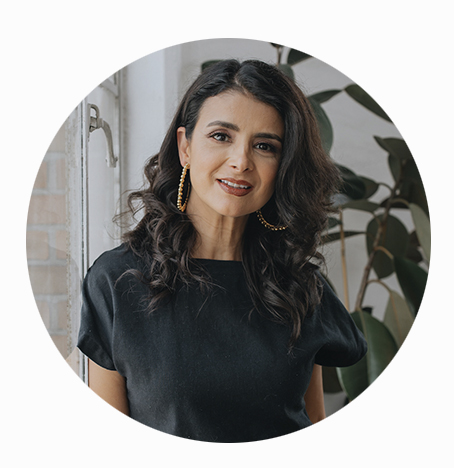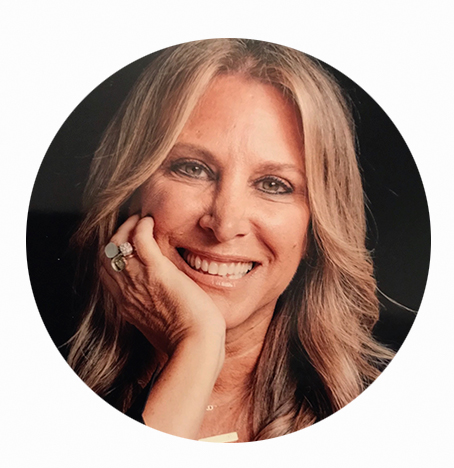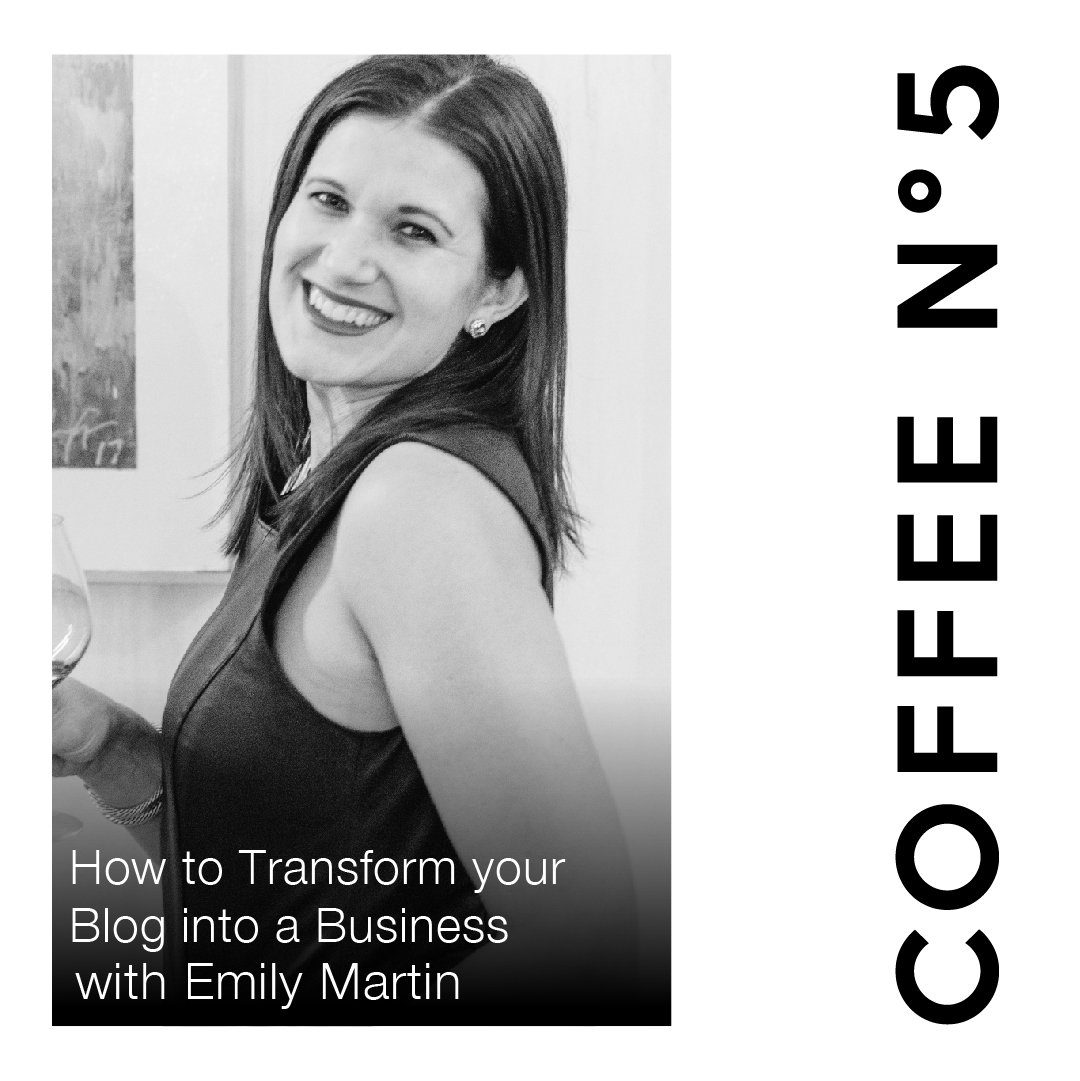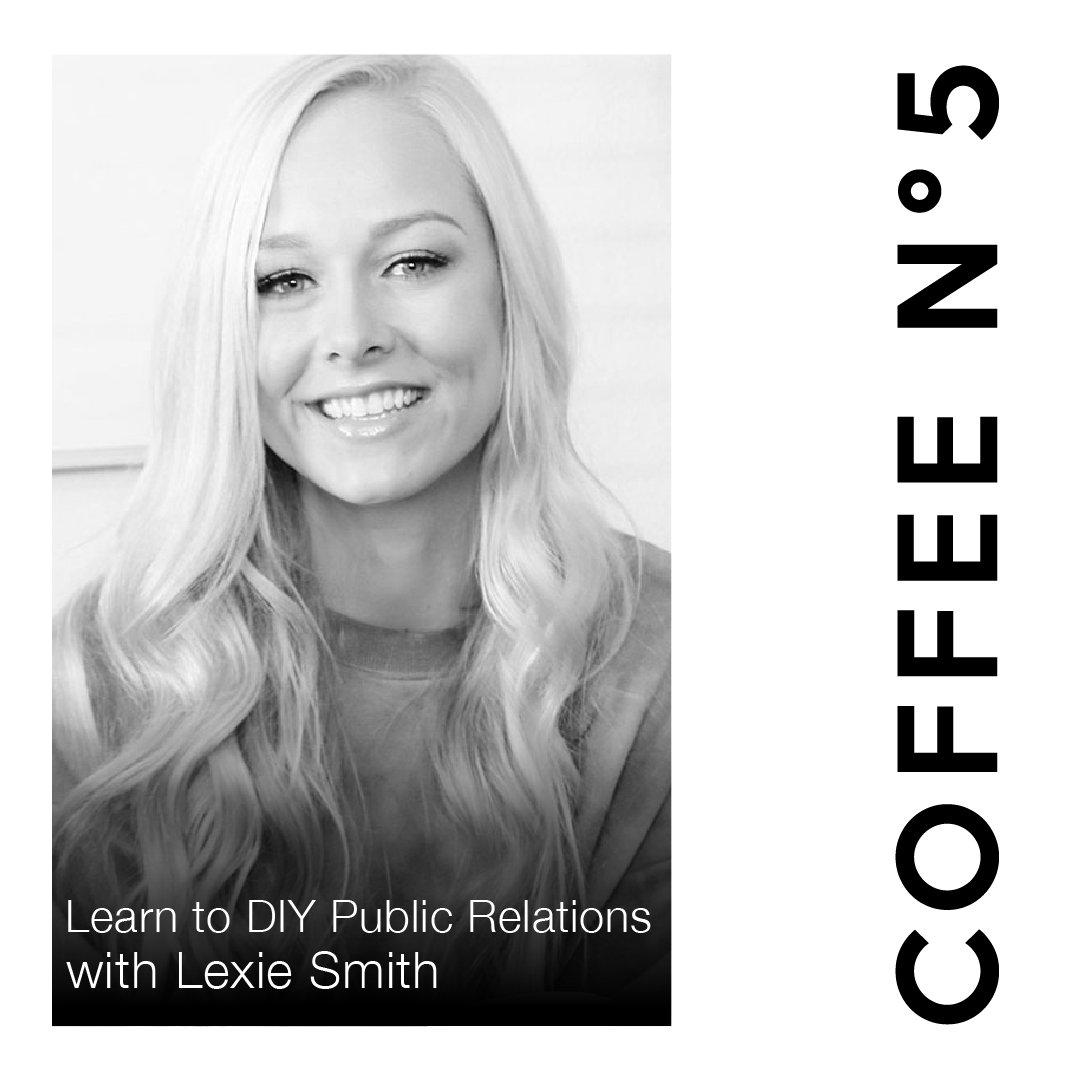Lara Schmoisman 0:05
This is Coffee Number Five. I’m your host, Lara Schmoisman. Hi, everyone. Welcome back to Coffee Number Five. Today I will thinking about my legacy and also from where I come from. And it’s hard. It’s hard at many times to change your traditions or to change who you are for where you are. I had to learn like growing Argentina, I never considered myself Latina. I consider myself many things. But I never had to think about if I was Latina or not. And when I moved to the States, and suddenly became many things, I became an immigrant. And I became a Latina also. And I was like, Oh, interesting. And I had to learn how to identify myself as a as a Latina. So today, I’m very excited because I have someone that I’ve been following for a while as a guest, but also, when I can pronounce the name without making a mistake. So welcome
Ana Flores 1:15
Glad to be here.
Lara Schmoisman 1:18
I’m so glad to have you here. I mean, I am being fascinated when I found out about We All Grow Latina. And so why not tell us a little bit about your background? And how how you became part of We All Grow Latinas and what’s your mission?
Ana Flores 1:34
Oh, well, I founded it at birth and grew out of me. i Yes. My background. I am a first generation Latina. Born in Houston, Texas. My parents are both from in Sevilla. And I grew up in El Salvador, my dad’s Well, I grew up between both countries, my dad still lives in Houston. And so I grew up coming back and forth, you know, with this dual, bilingual bi national identity. And I felt like just really defined me right without even understanding how I was always with one foot here, one foot there, learning about both cold, you know, Vietnam and completely immersed in both cultures, right? When I would come to Houston, my dad remarried, and had two more kids. So there were six kids in his house in suburban Houston. Plus, my sister and I hate kids. So our summers were very much like, you know, North American, us kids, suburb kids summers, and then I would go back to the side by Lord, where I had a privilege life because, you know, we were in the middle of a civil war and all that. So I did, you know, I grew up with those contrasts, really understanding the interesting Christie’s of of a BNSF voting Central American and being also North American. So I My background is from in professionally, I studied to be production, and UF University in Florida,
Lara Schmoisman 3:01
That’s so funny, we have the same background, that’s my production,
Ana Flores 3:05
Production and I started my career and maybe co network, the main network in Miami. And then you know, move to Mexico City I’ve worked with always, always always programming by and for Latinos. So the US Hispanic audience I got that firsthand, you know, in Spanish with only B, C on and then in Mexico City, I work for MTV, Latin America. So as you know, being from Argentina, from an MTV Latin America, we programmed for the whole it’s not for you as Hispanics, it’s for all Latin America. Yeah, all very different being in Argentina, and then it is in a Mexican than it is being a Colombian. And just the way you know, key words can change something completely right. So lately, obviously, a sense of humor is different all of that. So I learned how to like, in a way speak to a broader community, of Latinos and Latin America in Spanish as well. And then I moved to LA over 15 years ago, to launch be part of the creative team launching a channel that was called one doors back then it is now NBC Universal, it was part of the window NBC, and that brought me back to like programming to Latino youth now in English and Spanglish and you West Hispanic. So, I think once I became a mom and I went through, you know, the recession in 2008, and the writers strike back then and living in LA, that was very difficult. I became a mom, blogger, I really discovered that that was my passion. And my blog was for parents raising bilingual bicultural kids called Spanglish baby. So always as a communicator, I just I discovered a new medium and discovered it very early on. I started my blog in 2009. So I was an OG mom, blogger, one of the very few Latinas and I had this passion that I wanted to continue and it meant monetizing and that’s what led to it is now we all grow Latina I launched what I’m their original name of the company was Latina bloggers connect. And we were the first company connecting Latina bloggers in the US with brands. So what you now know is influencer marketing, we were the pioneers in this space and the US Latina Hispanic space. And that grew, you know, we grew what really I realized that what my passion was at the moment, I translated as this, you know, helping Latinos monetize their blogs and myself, but it was really about the democratization of our voices that this new medium brought to us right, that I didn’t need to work for this big corporate company to reach my audience. So that we can that it gave me a lot more say and control and how I would want to speak and understanding what the audience wanted. So now that you know, 13 years later, the company now call we all grow because our mottos and stay one has been one one grows, we all grow. And we have just we let go of influencer marketing, really what we do is that we nurture a beautiful community of impactful that Inez at every stage of their businesses or their careers, their lives. Dreaming, really, the importance of for us of community is the coming together with the community and the sisterhood that we call the Amigahood of like, like minded women that can help you open doors that can bring connections, partnerships, opportunities, or maybe just that this is possible, right, Let’s dream together. And that’s really what we do at the Amigahood, which is our app and our community, you can find it and the App Store is 25,000 members strong. It’s a free community. It’s the largest, largest app community for Latinas, specifically. So you’ll find free events. I mean, the it’s free, and you find free weekly events, everything from meditation to office hours with myself and my partners and the leadership team to healing sessions, mentorship sessions, I mean, across the board, plus almost 100 circles of like, you want to find Latinas and with higher education, you want to find Latinos in Austin, you want to find Latinos identify.
Lara Schmoisman 7:07
I, that’s amazing. And this is something I love what he said before, because something I can live by, that is like you cannot understand the community or until you understand what they laugh about. I live by it took me years to really understand it’s not even about speaking the language. Yeah, you understand what the community laugh about, is that you’re really understand the values of those communities. That’s so real. And I believe that as Latinos, we have experiences, that there are cultural experiences that even if we are here in the States or whatever you are in the world, those things connect us.
Ana Flores 7:46
Yeah, absolutely. Those are that’s the fine thread. Right, that I think that’s why it’s so hard for so many marketers that do not have a diverse group of Latinos in their team, and brands and et cetera. I don’t understand really that fine thread that unites us, because you have to be -, you can not wait.
Lara Schmoisman 8:07
So no, it doesn’t work. You need to understand what the culture is about. Like for example, I work with a car magazine in Spanish the what Latinos are interested in reading is very different that we’re Americans are very interested in reading about the car.
Ana Flores 8:26
Yeah, and even like us Hispanics versus Latin American let you know, people that live in Latin America, we’re not the same right? They are and within the United States, right, that we saw a lot in the last elections and in politics trying to reach Are you reaching right? If you’re focusing on the Miami Latino, that’s a completely different community than the LA Latino right and the makeup of it so it really is about being immersing yourself in the community, like you said, understanding what makes us laugh right, understanding what unites us understanding the commonalities and I think that’s what we do really well and we all grow and why are our Instagram you know, is such a and our community is such like a safe space for people because we just we are it right my whole team is Latina as has always been, what we just put out there what what happened backstage, you know, what happens on the Slack channel on the watercooler channel with us right well, we identify with what we gravitate towards and what we find that like says that unites us.
Lara Schmoisman 9:27
Yeah, and it’s not only about being Latino Latina is one part of it. And it’s only who you are as a person and your heritage but also we identify to be in different things with the professional being a mother there are so many things that you can have in common, or as a difference. We still as history and for example, we’ll have our our well ask Who cooks similar things, or that they have similar beliefs or similar events, wives tales? Yeah. And I love that I Oh, was trying to translate those Spanish staying in English and they don’t make sense.
Ana Flores 10:05
Oh, no, they don’t.
Lara Schmoisman 10:08
So tell me a little more about creating a community because this is what something that is fascinating to me. And it’s one of I think it’s my key word for 2023. community, because beautiful, it says, I believe that you need to connect with your ideal marketing. So we sell product, we sell services, but nobody’s going to buy anymore if you don’t create that sense of community and the trust and loyalty.
Ana Flores 10:39
Yeah, so thanks for mentioning your word of the year, my word of this year was, is integrity. And I think that relates so much to how we build community and how we create community. We really start with with the integrity that we want to live by, and the values that we’re inviting people to be part of as a community. So I think it’s such a buzzword, you know, and people want to have like the, the, the easy access, like what is the formula to create a community and have it you have 20,000 people in that by tomorrow, right? And because now it feels so easy to create a community in spaces, like Instagram or social media, but there’s a there’s a big difference between follow me and community
Lara Schmoisman 11:23
Very, we’re following is a collection of people.
Ana Flores 11:27
Exactly. And following can be, you know, like, I laugh at your memes that I really don’t connect with you. Right, you can serve me 10 Memes a day. And of course, I’m gonna quickly rack up a following because those are shareable. Those are funny, but but do people know what you stand for? Do people really connect with you as a brand with it? Is it a community? Or is it just a large following, we have decided, so our Instagram, I always say could be five times there. We’ve been on Instagram for a really long time. But we decide very purposefully, that we do not do just, you know, memes, or just like the clickbait kind of thing, because we want to build a safe space. So we want every single post to matter where you feel that you’re being spoken to, and that you feel that you can engage. And if you take a close look in our comments, you will hardly ever find trolls, or negative comments. Unless it’s like topics that go viral that are, you know, the topic that there’s just trolls crawling all over the place, right. But it is for us community has to start with listening, deep listening, right deep listening and deep giving, and welcoming people in. And then as they’re there continue to, to to make them feel, you know, that connection between themselves. Because one thing it’s not, it’s not you building a community so that you can sell to them, it’s not building a community so that you can, you know, make asks all the time, it is building the community to give them a space where they feel safe, where they feel seen where they feel they can belong, and where they feel nurtured. And through that they’re gonna be able to connect with others. It’s all about connection and belonging, they want to continue coming back
Lara Schmoisman 13:05
is about all the to me, I don’t care about having five or 100 followers or 10,000 followers, a million followers, it’s about connecting and engaging with my community, about really a small a prefer to have a smaller community but loyal and that is the same as meeting is like. And I feel like this is a lot like a lot of products on a lot of services out there. They’re trying to get so much that they’re really not targeting to anyone. And I love that you have very clear idea. Who is your target audience?
Ana Flores 13:41
Absolutely.
Lara Schmoisman 13:43
Do you feel like in your target audience, you have different demographics, because there’s a lot of differences between first generation lottery. And so how do you deal with that? Because I see, for example, something that is very popular what a lot of people think about Latinos, they think immigration and I don’t think that that’s something that you deal in the community.
Ana Flores 14:05
No. So we’ve actually had to draw the line in a lot of things, especially, you know, post 2016, when things conversations online just became very political, very much. You segmented and we needed to understand because having such a powerful voice within the within the any community right gives you a sense of responsibility, or at least it shut. And for us that sense of responsibility was where should we where should we be injecting our voice and where should we not? And because we were such a big community of Latinas, we were being approached a lot by different more civil engagement and politics and etc, to speak up. And we did for a moment but it never felt right. In the sense of yes, we will speak up when we draw the line where it’s like it’s human rights, right where it’s human rights. We will go But at the end of the day, we want to be a place of joy there, there’s enough places for you to get the news for you to get, you know, to put your your viewpoint and politics where maybe for us, we want it to be that safe space where you can come and feel joy, and experience joy and experience connection and experience belonging, right. We’d have I think that has to be the basis of anything that we approach in our day to day life. And that’s why healing and wellness all that is so important to us. And we integrate that into practically everything that we do. So the, our community is made up at least that Spanish speaking only English speaking only. Latinas, Portuguese, Latinas, indigenous Latinas that identify maybe just as indigenous and not as Latinos, but they still feel connected with us. And we try to, you know, represent all of that Afro Latina. So we have a large community of Afro Latinos living all over the country. And we also have Latinos across the globe, right?
Lara Schmoisman 16:03
So as I tell you, I always identify myself as a Jewish, Latina, another Irish,
Ana Flores 16:08
Asian, Latina, Jewish, Latina, and we need to make sure that everybody feels seen, and you can’t do that on every single post. Right? So but it is like, how are we making sure that we are always mixing in and having, you know, as much as possible, everybody feel that sense of, you’re speaking to me. So one of our most controversial posts I’ve been a few years ago, and it’s happened twice every year. I don’t know if we’re going to do it this year, again, to see that it was opposed on during the holidays, on families, and link the different way that the minus are represented in different countries in Latin America,
Lara Schmoisman 16:44
where they’ll have tamales exactly what
Ana Flores 16:46
I did last night. Yeah, Tesla lost a million. Okay, Nika, Tamala, -. But we it was a carousel, so we can only fit nine right in the cover. And then we’re like, and tell us here’s the amount of comments I post gotten people upset because we have forgotten that the mind from their country. Or your post to?
Lara Schmoisman 17:07
Well, I really hope that this is your most controversial post forever.
Ana Flores 17:14
There’s been others unfortunately, of topics that we wish people were more receptive for an open minded but we live in the days we live in,
Lara Schmoisman 17:24
What do you feel like it’s your biggest challenge right now in fostering this community?
Ana Flores 17:30
Oh, that’s a really good question. And honestly, our biggest challenge is financial capital, I think that’s going to be usually the answer. For most Latina Owned Small companies, small businesses, we are completely independent and self funded, we don’t have a penny of investment, all the capital comes from the campaign’s that we do with brands. So that’s always very challenging. You work in marketing. So you know, that they’re, you know, we have to be able to meet the our clients, our brands are the marketers, you know, give them a return on their investment and be able to meet their key metrics and their goals, while making sure that what we’re putting out there is serving the community, it’s bringing something of impact to them. So whether it’s a connection, whether it’s an event, whether it’s a grant, whether it’s an opportunity information, you know, it has to make sense for them. If we had a better, better access to capital that would allow us to just really create the content that we know that we need to be putting out there for the community, I think we would be serving them much better.
Lara Schmoisman 18:29
But I know I mean, not Latinos were thrifty. Oh, yeah. We know, we make it happen. We know how to go on soy, we culturally were prepared for that, to fix it. And so but you still make a lot of things happen. You have a big event in October for what I understand.
Ana Flores 18:51
Yes, we’re calling it the we confess, it’s our first year, we’re bringing together two of our most loved one day events, which is less founders, which is a full day of keynotes and workshops and experiential opportunities for what we call women with an entrepreneurial spirit. So whether you already have a business that’s thriving, or you’re thinking about launching one and just want to get inspired by other women that have made it and then we have wellness state, which we’ve hosted for two years, pre pandemic, 2018 and 2018. And this was the very first space ever created the very first stage and space creative for Latinas in the wellness space. So we’re bringing both of them together into a what we’re calling weekend fest. But our most iconic event or most loved event is we all grow Summit, which we’ve hosted for six years with the two year pause 2020 and 2021. We brought it back last year. It was a three it’s a three day event, but we haven’t been in a cube incubation mode right now. It really is what was our flagship what made us really well known and It sold out within hours, like 10 months in advance, and it would sell out in three hours. But we yeah, we decided that the way, you know, things are different now, things are very different. A three day conference is much harder to produce and for people to invest in than it was pre pandemic. So we’re just we’ve decided to put it on pause and incubated for a little bit and see, see how we bring it back to life further down the line?
Lara Schmoisman 20:26
Yeah, it’s challenge. And I feel like even me, I go through a lot of conferences, but after the pandemic, I got like, do I want to travel so much. And also we were experiencing, the prices went up. So it’s hard. And a lot of companies don’t have the budget also to support.
Ana Flores 20:48
We felt that like the budgets, we we were working with the same budget we used to have for the three day summit last year, and nothing, flowers, wood, labor, everything is astronomical. So yeah, it’s not the same. It’s definitely not the same.
Lara Schmoisman 21:05
It’s not the same. So what’s next, if you have a dream of what’s next part, we all grow Latinas, what will be the next thing?
Ana Flores 21:14
Really, our next thing is growing the app growing the community, we really want to, you know, we want to hit 100,000 Latinas across the globe and be able to super serve all of the all of the Latina host and volunteer moderators that we have in all the different circles, and just be able to super serve the community and meet them always where they’re at.
Lara Schmoisman 21:35
That’s amazing. I not thank you so much for being with us today. They said coffee break I really respect and admire you’ve been doing for an – community.
Ana Flores 21:47
Good.
Lara Schmoisman 21:51
And to you guys, thank you so much for being here today. And Coffee Number Five, and I’ll see you next week was so good to have you here today. See you next time. Catch you on the flip side. Ciao ciao.








